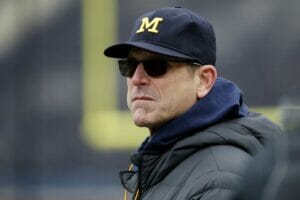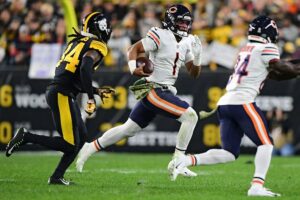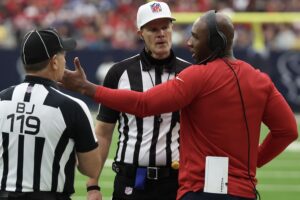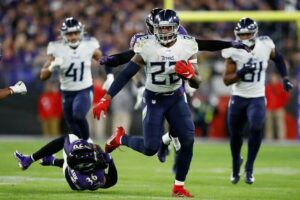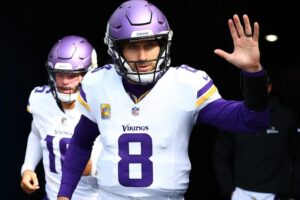The NFL Draft: From Nonevent to Three-Ring Spectacle
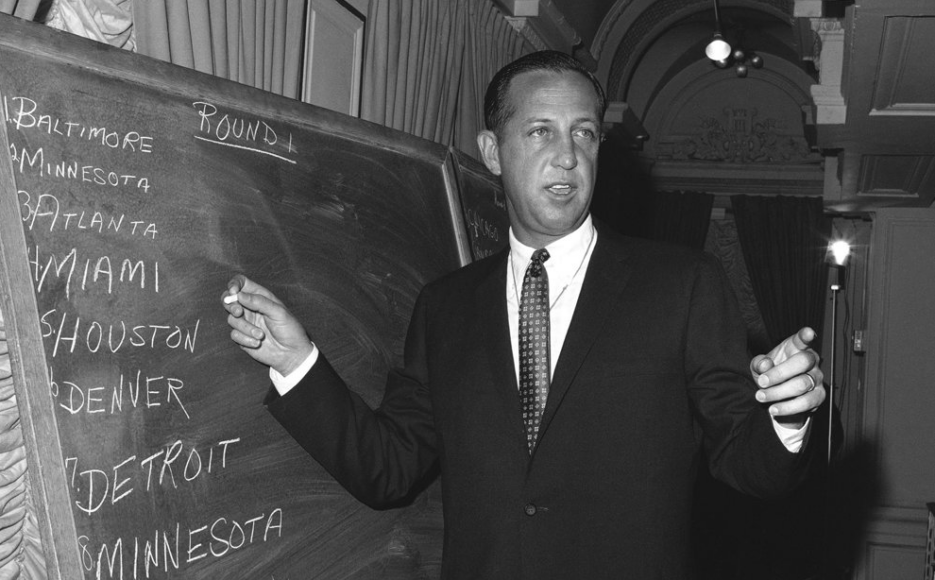
The NFL commences its annual three-day draft this week in Kansas City, beginning with the high-profile and much talked about first overall pick, and ending with Mr. Irrelevant, the nickname given to the 259th and final pick.
Many things in today’s NFL are nearly unrecognizable from its humble beginnings. The original AFL-NFL Championship Game, which would later become known as Super Bowl I, cost $12 to attend, and it didn’t sell out. At February 2023’s Super Bowl LVII, the average ticket price was $9,915.
The NFL Draft, officially called the Players Selection Meeting, had even more modest beginnings. So modest almost no one outside of the NFL themselves knew it was taking place.
The First NFL Draft
Suggested by Eagles coowner Bert Bell in 1935 as a means of helping out the teams that weren’t as financially stable, the first NFL Draft was held in 1936 at the Philadelphia Ritz-Carlton.
There were no scouts, no agents, and no real rules regarding a player’s eligibility. So the nine NFL teams each made nine picks from a list of 90 players that was compiled from newspaper reports and word-of-mouth recommendations.
The very first pick in the draft was the inaugural winner of the Heisman Trophy, halfback Jay Berwanger from the University of Chicago. But ultimately, Berwanger never played in the NFL, and instead became a foam rubber salesman. Of the 81 players selected in that draft, only 24 actually played in the league.
Of those 24, four of them, guard Dan Fortman, tackle Joe Stydahar, end Wayne Millner, and back Alphonse “Tuffy” Leemans, would go on to become Pro Football Hall of Famers.
Also selected in that draft was a third-team All-SEC end named Paul “Bear” Bryant. He did not play in the NFL, and instead took a job as a college assistant coach. Some 25 years later, he won the first of six college football national championships as the head coach at Alabama.
The Media Evolution
Even as the NFL grew from a nine-team league in 1936 to an expanded and merged league of 28 teams by the end of the 1970s, the NFL Draft was still largely treated as a nonevent. It was held in the middle of the week and in hotel ballrooms around New York City, and the media coverage was limited to newspapers.
That changed in 1980, when Chet Simmons, the president of a year-old cable channel called Entertainment and Sports Programming Network (ESPN), asked NFL commissioner Pete Rozelle if they could broadcast the draft. As former ESPN vice president John Wildhack tells it, “Pete thought Chet was out of his mind. But Pete said, ‘Let’s try it.’”
In 1988, the NFL moved the draft to the weekend, increasing television ratings. In 2006, the league’s own recently launched NFL Network began covering the draft. In 2010, the NFL made the draft a three-day primetime television event, beginning at 8 p.m. ET on Thursday and running through Saturday.
Beginning in 2015, the NFL moved the draft out of New York City and opened it up to a bidding process. Chicago hosted the draft in 2015 and 2016, Philadelphia hosted in 2017, Dallas in 2018, Nashville in 2019, there was a virtual draft in 2020, Cleveland in 2021, and Las Vegas in 2022. Kansas City is the host this week.
A stage has been built at Kansas City’s Union Station, and there will be concerts, celebrity guests, and an expected crowd of 300,000. The television audience for just Thursday’s first round is expected to top 10 million.
Betting on the NFL Draft
Gambling was legalized in 1931, and the first NFL Draft was held just five years later. But it wasn’t until 2017 that the Nevada Gaming Control Board approved betting on the draft. The rules were different than today. Limits were small and the available props to bet were limited, and a bet on the first overall pick was not approved.
Six years later, a bet on which of the two quarterbacks will be selected No. 1 overall — Bryce Young of Alabama or C.J. Stroud of Ohio State — is one of the most popular bets on the board. The current odds have shifted heavily in favor of the Heisman Trophy-winning Young, with BetOnline.ag paying -2000 on a bet for Young and +700 for a bet on Stroud.
The small number of available prop bets in 2017 are a thing of the past, with BetUS.com offering nearly 100 total draft prop bets. Those props range from which players will be selected highest, who will be selected by which teams, which positions and colleges will have the most selections, and will Mr. Irrelevant, the final player selected, be an offensive or defensive player.
In 2022, Mr. Irrelevant was Iowa State quarterback Brock Purdy, who went on to lead the 49ers to the NFC Championship Game.







